The Mother of God with three hands and other unusual icons
Orthodox in Many bizarre icons have been revered in Russia and continue to be revered. Some of them were even banned by the Church because of their frightening appearance.
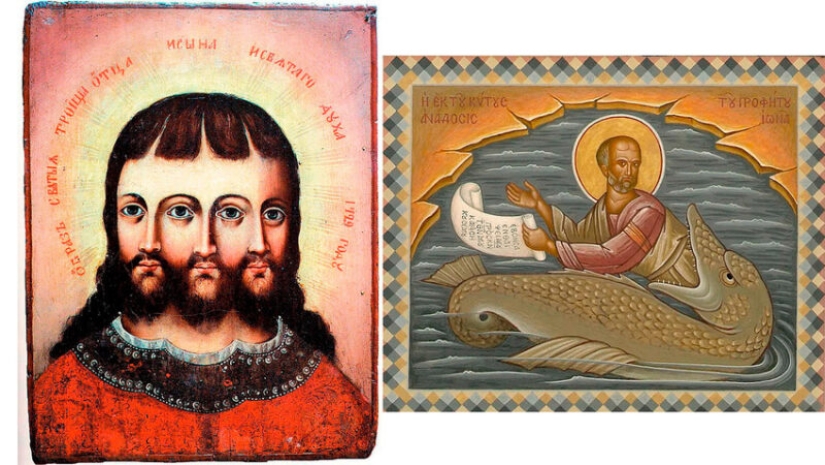
The name speaks for itself: The Mother of God is depicted with three hands. According to legend, the story behind this image took place in the 8th century in Byzantium and is associated with an episode from the life of St. John of Damascus.
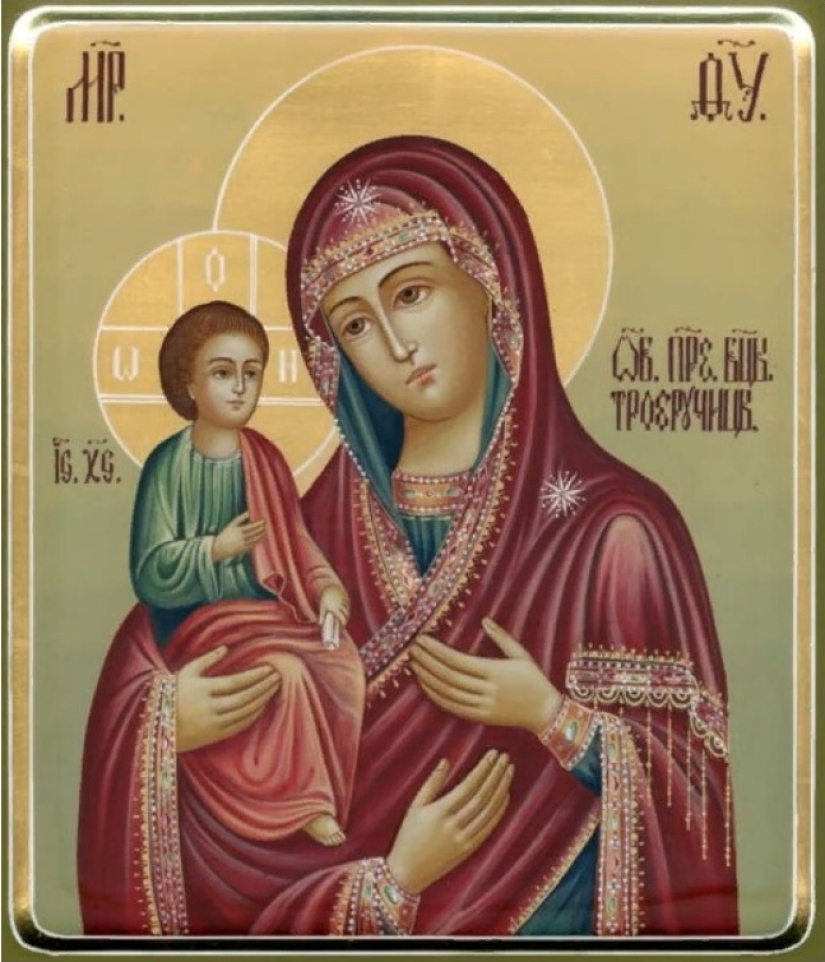
He lived in Syria, came from a noble Christian family and was a prominent official in the caliphate. At that time, iconoclasm was gaining momentum - a movement sanctioned by the authorities against the veneration of icons and the destruction of all other objects of worship.
As a zealous Christian, Damascene did not stand aside and sent a protest message to the Byzantine Emperor Leo III. It quickly spread throughout the empire, infuriated the emperor, but he could do nothing with a Syrian subject. So the plan to frame Damaskin was born. A letter was written on his behalf, in which Damascus allegedly calls on the Byzantine ruler to attack Syria and rid it of the caliphate.
The fake was handed over to the caliph, and he ordered Damascus's hand to be cut off. As a warning, the hand was put up on the main square of the city. All night the slandered one prayed in front of the image of the Mother of God — and the severed hand miraculously grew back. Soon, according to believers, the first icon of the Virgin appeared with a silver third hand attached to it. But over time, there was a tradition of simply painting it with paint.
This icon with the image of St. Christopher in the 18th century was officially banned by order of the Holy Synod as "contrary to nature". In other words, the dog-headed saint looked too ugly. Icons with him, as a rule, were destroyed, but several copies have survived to this day. The Old Believers, for example, still continue to revere the depicted Christopher-kinokephalus.
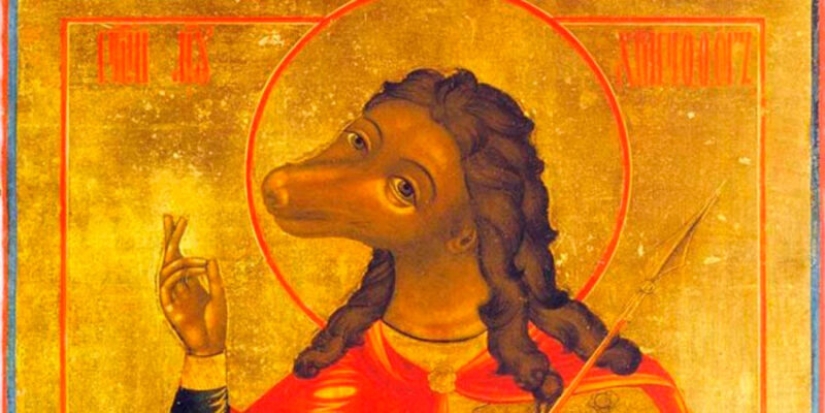
There are several versions of why the martyr Christopher, who lived in the 3rd century, began to be depicted with the head of a dog. From the theory that he suffered from a rare type of genetic mutation, hypertrichosis, from which the human body is almost completely covered with thick hair, to the version that his nickname and ferocious, bestial character were interpreted this way.
There is even an idea that Christopher was from the tribe of "psoglavets" - dog-headed people, the description of which is often found since ancient times. Anyway, after the ban of the Synod, Christopher began to be portrayed as all normal people.
Even worse were the icons with the image of the three-faced Christ. The Roman Catholic Church condemned such images a century earlier than the Orthodox Church did. "Uncanonical and ugly," the Synod declared in 1764, and banned the image. However, the news did not go quickly to remote corners of the country, and many-faced icons continued to appear in parishes.
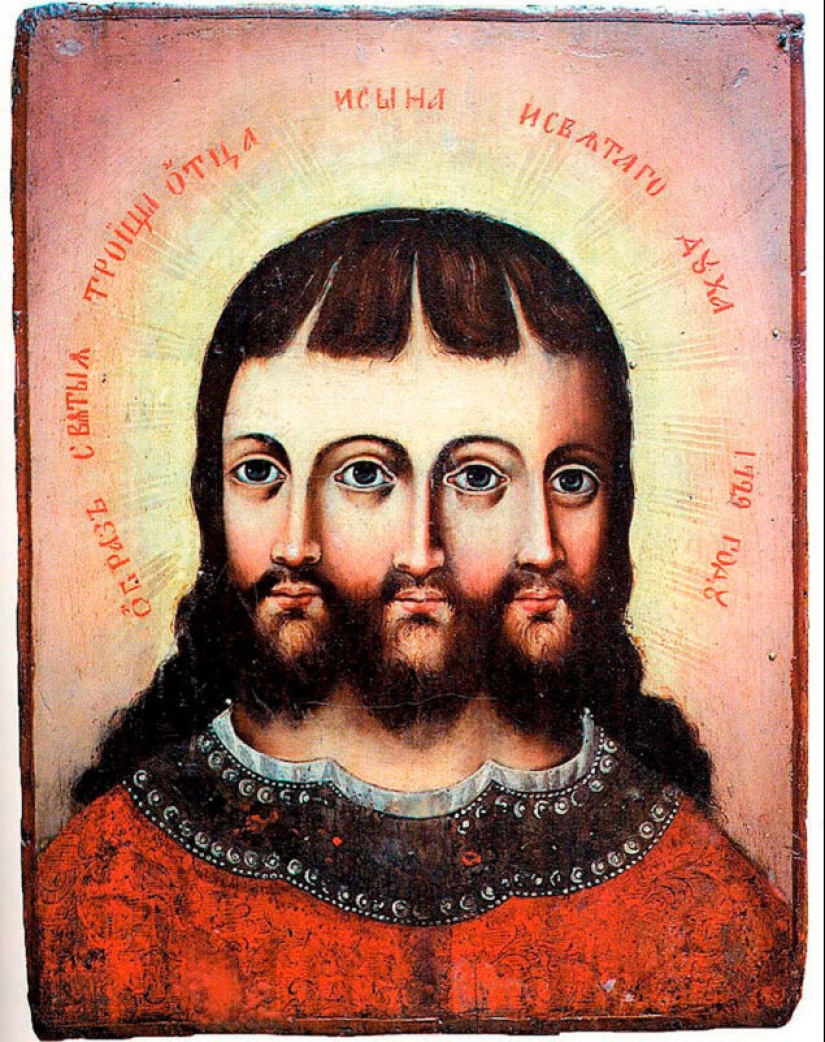
One head, three faces, four eyes — this frightening image was just one of the visual representations of the dogma of the Trinity (father, son and holy spirit). Traditionally, they were depicted as three identical figures with the face of Christ, but the idea was developed in this way. On some icons, the Trinity generally had one torso, but three heads with identical faces.
For those unfamiliar with the canons of iconography, "Saved the Unsleeping Eye" is a very unusual specimen. On it, Christ is depicted as a young man who either supports his face out of boredom, or is going to take a nap.
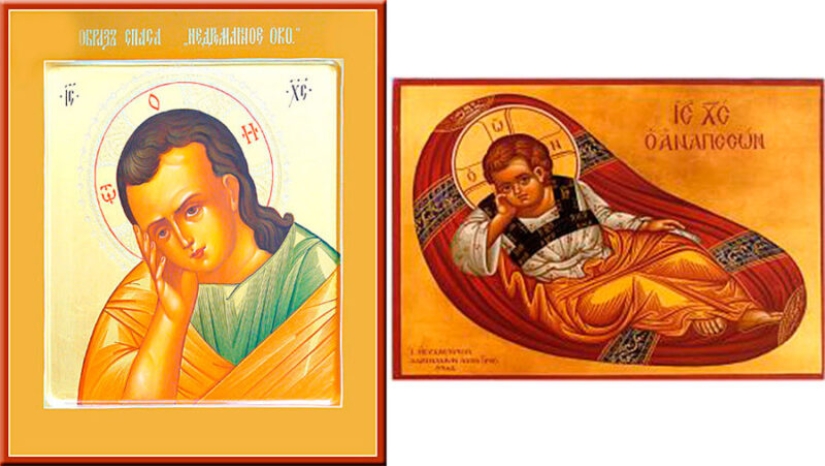
In fact, Jesus in this image is already asleep, but he sleeps with his eyes open, which is an allusion to the lion. In the Middle Ages, it was believed that the lion sleeps this way. The origins of the image are just a few lines in the Bible, where Jesus is called "the lion of the tribe of Judah" (that is, a brave man). In iconography , this image appeared in Byzantium, and then spread to Russia.
This is a very rare icon depicting one of the Old Testament subjects. The Lord called the prophet Jonah and ordered him to go to the sinful city of Nineveh and preach the true faith there.
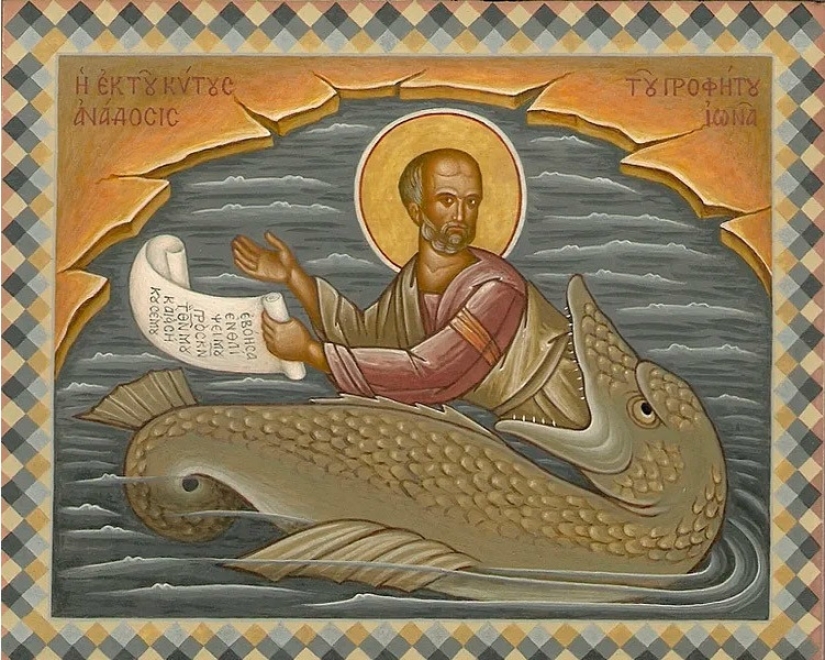
However, Jonah did not want to fulfill the will of God and decided to just... go on a long journey. God 's punishment has come to Jonah in the form of a whale that swallowed the prophet during a storm, and he prayed to God for forgiveness for three days and three nights. Being in the belly of a whale. As a result, God forgave Jonah and he later converted many pagans to the faith. And the icon depicts the moment of the prophet's release.
Keywords: Icon | Unusual | Selection | Christianity
Post News ArticleRecent articles

It's high time to admit that this whole hipster idea has gone too far. The concept has become so popular that even restaurants have ...

There is a perception that people only use 10% of their brain potential. But the heroes of our review, apparently, found a way to ...
Related articles

There is a perception that people only use 10% of their brain potential. But the heroes of our review, apparently, found a way to ...

Under the motto "let everyone know" people were writing on the pavement (and not only) what it tells the heart. And sometimes it ...

Various anomalies are always exciting and interest! Don't you would like to see a man with 30 fingers or a rare natural phenomenon ...

New Year's is a time to surprise and delight loved ones not only with gifts but also with a unique presentation of the holiday ...